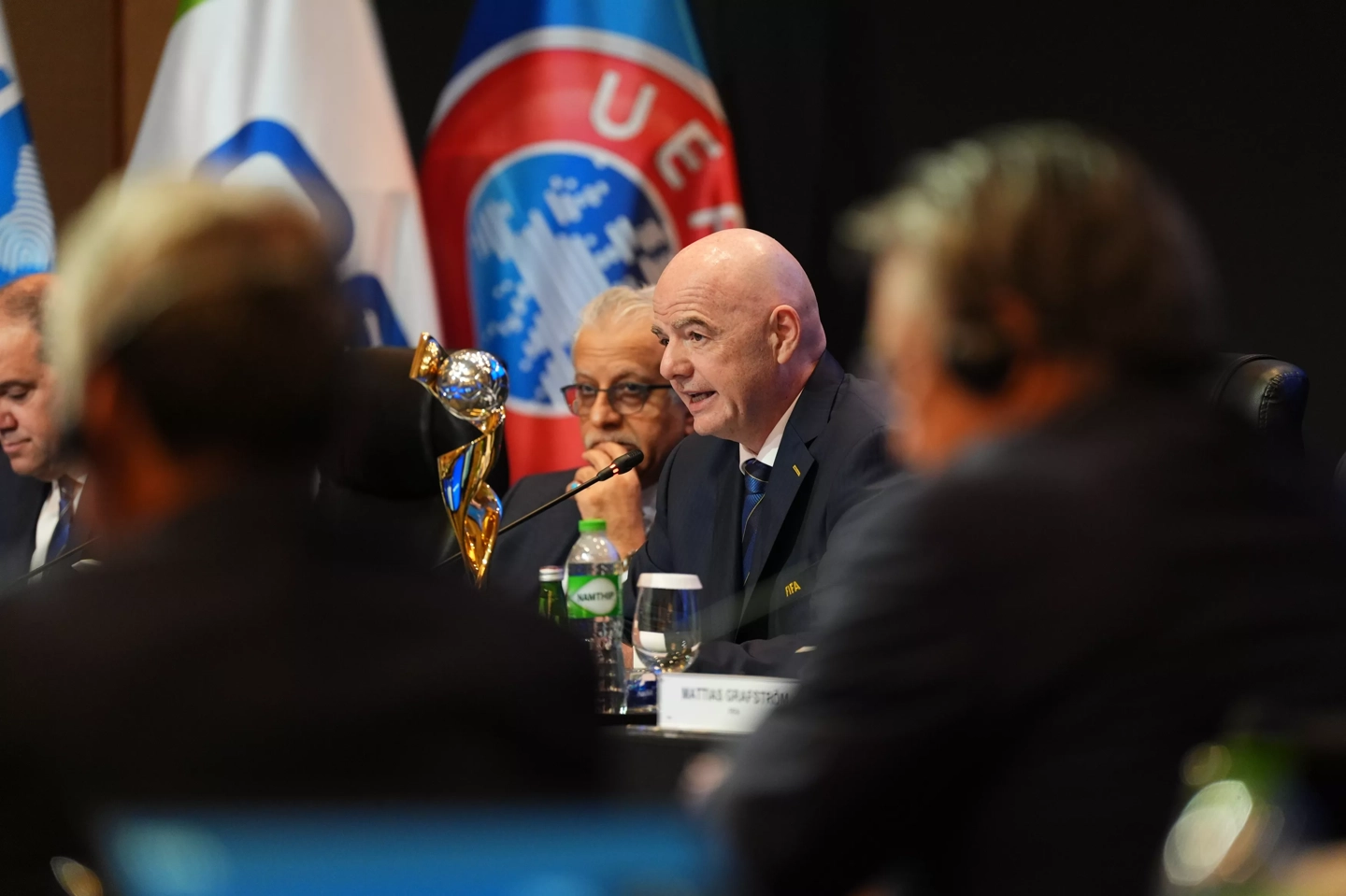Gianni Infantino said that the launching of a new 16-team FIFA Women’s Club World Cup™ would be “crucial” for the women’s game and give clubs a much-needed opportunity to perform on the global stage. Meeting in Bangkok, Thailand, two days before the 74th FIFA Congress, the FIFA Council unanimously approved the Women’s International Match Calendar (WIMC) 2026-29 and proposed that the inaugural FIFA Women’s Club World Cup take place in January-February 2026.
The FIFA President said that the new competition would keep the momentum going for women’s football in the wake of the transformative and record-breaking FIFA Women’s World Cup 2023™. “It’s crucial, after the huge, huge success in Australia and New Zealand at the last (FIFA) Women’s World Cup, where we had two million viewers in the stadiums (and) two billion around the world, that we build on that success to create new global competitions, because national team football is obviously based on club football as well,” he said following the FIFA Council meeting.
“To this date, we don’t have a global club competition for women. Yet we are asking clubs to form women’s clubs all over the world. We need to give players an opportunity to perform as well on the global stage and to develop themselves in all the continents of the world. For this reason (we want) to have a 16-team FIFA Women’s Club World Cup in January/February 2026.”
He added: “The simple fact of having it is definitely going to boost club football, women’s club football, all over the world to an unprecedented level because the best players from wherever they come in the world will play in this competition and can showcase their talent.”
The FIFA President emphasised that the new WIMC had been “discussed thoroughly with all the stakeholders in women’s football, taken from the experiences of the past, looking ahead, changing, and moving from three types of windows to only two types of windows.
“In essence, it means that it’s much better coordinated, much easier for the women to play for their national team, also in final competitions, including the Olympic Games, to protect the games, to protect the leagues, to protect the clubs, to protect the national team competitions, and to protect, especially, the players.”
The FIFA Council also approved landmark amendments to the Regulations on the Status and Transfer of Players (RSTP) to further protect the well-being of female players and coaches. “We are speaking here mainly about maternity, about pregnancy, about adoption of children and family-related matters,” the FIFA President said of the latest set of RSTP changes. “We (now) move to the next level to give even (more) enhanced and more protection to women when it comes to the women’s game to make sure that they don’t just lose their contract with their club. They are protected. If their family grows with children, well, these children are welcome, and it’s welcomed as well that their mothers play football and continue to play football.”

